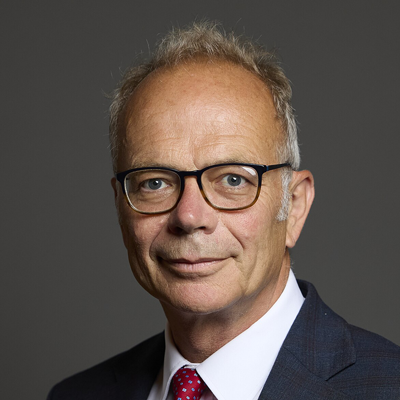
Dr Simon Opher MP
Chair of the All-Party Parliamentary Health Group

Jasmin Adebisi
Policy Manager (Health), Policy Connect
The Government has made the restoration of the NHS the central plank of its efforts to renew Britain, and at the heart of this is moving care out of the hospital and into the community.
This shift has countless advantages; patients prefer to be at home, get better quicker and are less likely to suffer setbacks like a fall or becoming institutionalised. It is also much cheaper.
How neighbourhood centres enable shift in care
Moving care into the community has been a constant aspiration in the 35 years that I have worked as a GP and hospital doctor. Yet, budgets for hospitals continue to expand while, relatively speaking, funding to primary and community care decreases.
So, how are we going to make this fundamental shift? The answer could be the establishment of Neighbourhood Health Centres. The concept is that all ‘out of hospital’ care will be integrated in one place, with GPs working alongside other services (district nurses, physiotherapists, podiatrists, mental health workers, social care, minor injuries, to name a few).
Integrated care through GP hubs
The best way to do this is to gather services around general practices, which are already embedded in their communities. Removing barriers between different branches of the NHS, sharing clinical records and ensuring health centres work with their local voluntary, community and social enterprises are all critical. These measures, together with robust social prescribing, have the potential to revolutionise healthcare in the UK.
Co-locating 111 and ambulance services
with GPs would allow senior clinical
triage on emergency calls, allowing
more patients to stay at home.
Local networks and flexible models
The work of Neighbourhood Health Centres will vary as they use networks set up by local healthcare workers, rather than fitting a standard NHS structure. For example, they may be co-located, or, if that isn’t possible, they might be virtual networks with a hub and spoke architecture.
Co-locating 111 and ambulance services with GPs would allow senior clinical triage on emergency calls, allowing more patients to stay at home, with district nursing and social care support working from the same base.
Clinical backing for neighbourhood care
The 10-Year Health Plan is likely to suggest that Neighbourhood Health Centres are a key solution to ‘fixing’ the NHS, but only with full clinical buy-in from health professionals can we keep elderly frail patients out of hospital and bring back continuity of care and the old role of the family doctor, working within a modern community health team.
I am also pleased to be co-chairing a new inquiry from the All-Party Parliamentary Health Group and Policy Connect, Improving Access to Primary Care Services, which will explore various solutions, such as Neighbourhood Health Centres, to deliver long-term improvements in patient experience, workforce sustainability and service integration.


